-
Visit Students Portal
-
Visit Lecturer Portal
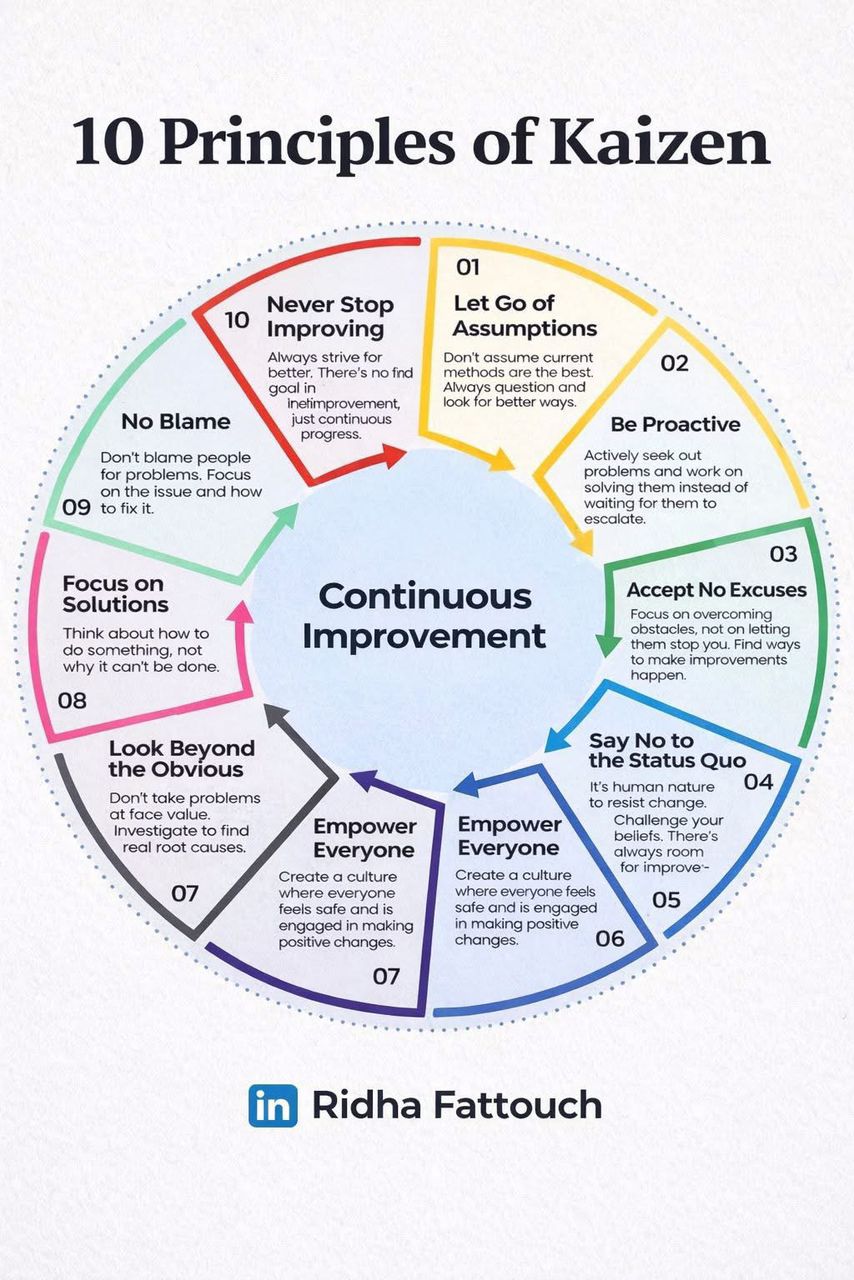
The 10 Principles of Kaizen highlight continuous improvement through small, consistent actions rather than radical change. Rooted in the Japanese idea of “change for better,” Kaizen encourages proactive thinking, accountability, collaboration, and a no-blame culture.
By focusing on solutions and daily incremental progress, Kaizen helps organizations enhance efficiency, improve quality, and build a sustainable high-performance culture.
The image presents “10 Principles of Kaizen” centered around the idea of Continuous Improvement. Kaizen, a Japanese philosophy meaning “change for better,” is not about radical transformation — it is about small, consistent improvements that accumulate into significant progress over time.
Below is a detailed elaboration of each principle and how it applies in professional and organizational contexts.
1️⃣ Let Go of Assumptions
“Don’t assume current methods are the best.”
Assumptions are invisible barriers to improvement. Many organizations operate on inherited routines: “This is how we’ve always done it.” Kaizen challenges this mindset.
• Question existing workflows regularly.
• Use data instead of opinions.
• Benchmark against best practices.
• Encourage constructive questioning from all levels.
Impact: Creates intellectual humility and openness to innovation.
2️⃣ Be Proactive
“Actively seek problems before they escalate.”
Kaizen sees problems as opportunities for improvement — not as threats.
• Identify bottlenecks early.
• Conduct routine audits and feedback sessions.
• Encourage reporting of small inefficiencies.
• Use preventive action instead of corrective reaction.
Impact: Reduces crisis management and builds organizational resilience.
3️⃣ Accept No Excuses
“Focus on overcoming obstacles.”
Excuses protect comfort zones. Kaizen promotes accountability.
• Shift from “Why it can’t be done” to “How it can be done.”
• Break big challenges into smaller achievable steps.
• Focus on controllable factors.
• Replace blame with responsibility.
Impact: Builds a results-driven and solution-oriented culture.
4️⃣ Say No to the Status Quo
“Challenge comfort and resist stagnation.”
Improvement requires discomfort. Growth happens outside routines.
• Regularly review processes for relevance.
• Set stretch targets.
• Encourage experimentation.
• Reward initiative and innovation.
Impact: Prevents organizational complacency.
5️⃣ Empower Everyone
“Improvement is everyone’s responsibility.”
Kaizen is not top-down; it is participatory.
• Create safe spaces for ideas.
• Flatten communication barriers.
• Encourage cross-functional collaboration.
• Recognize contributions publicly.
Impact: Builds ownership and engagement across the organization.
6️⃣ (Expanded from Empowerment Theme) Build a Culture of Engagement
True empowerment goes beyond permission — it requires capability.
• Provide training and skill development.
• Develop problem-solving competencies.
• Encourage peer mentoring.
• Align individual goals with institutional goals.
Impact: Turns employees from task executors into change agents.
7️⃣ Look Beyond the Obvious
“Find root causes, not surface symptoms.”
Many organizations solve symptoms rather than problems.
• Use tools like the 5 Whys.
• Conduct root cause analysis.
• Examine systems, not just individuals.
• Collect qualitative and quantitative evidence.
Impact: Produces sustainable solutions instead of temporary fixes.
8️⃣ Focus on Solutions
“Think about how to do something.”
Problem-focused thinking drains energy. Solution-focused thinking drives action.
• Limit time spent on complaints.
• Set solution deadlines.
• Encourage brainstorming sessions.
• Pilot test ideas quickly.
Impact: Accelerates improvement cycles.
9️⃣ No Blame
“Fix the process, not the person.”
Blame creates fear; fear kills innovation.
• Separate mistakes from misconduct.
• Encourage learning reviews instead of fault-finding.
• Promote psychological safety.
• Use errors as learning tools.
Impact: Builds trust and continuous learning culture.
🔟 Never Stop Improving
“There is no final goal in improvement.”
Kaizen is a mindset, not a project.
• Conduct periodic reflection sessions.
• Track small wins consistently.
• Embed improvement metrics in KPIs.
• Celebrate progress, not perfection.
Impact: Ensures long-term competitiveness and excellence.
🔄 The Core: Continuous Improvement
At the center of Kaizen is Continuous Improvement — a disciplined habit of making small, incremental changes daily.
It involves:
• Consistency over intensity
• Systems thinking over shortcuts
• Discipline over motivation
• Culture over campaigns
Strategic Insight
When applied institutionally (e.g., universities, faculties, corporations), Kaizen:
• Enhances operational efficiency
• Improves quality assurance
• Strengthens leadership credibility
• Builds a high-performance culture
• Encourages lifelong learning
Final Reflection
Kaizen is not about dramatic transformation.
It is about disciplined progress.
Small improvements × daily repetition × collective ownership
= Sustainable excellence
Discover the power of Kaizen — the Japanese philosophy of continuous improvement. Instead of waiting for big breakthroughs, Kaizen encourages small, consistent steps that lead to meaningful, lasting change. By focusing on steady progress rather than perfection, individuals and organizations can reduce overwhelm, build momentum, and achieve sustainable growth.
The Magic of One Inch: Why Tiny Steps Lead to the Biggest Changes
Stop waiting for a giant leap forward. Discover the Japanese philosophy of Kaizen and how the
smallest actions, repeated daily, can transform your life and work without the overwhelm.
Have you ever felt completely stuck?
We’ve all been there. You are waiting for a massive shift a breakthrough moment, a sudden
windfall, or a lightning bolt of inspiration to finally improve your life or your career. We
mistakenly believe that for progress to count, it must be huge.
So, we wait. And while we wait for the "perfect time" to take a giant leap, we remain paralyzed by
overwhelm.
But what if the biggest shifts don't come from leaps at all? What if they come from something
much quieter, much smaller, and infinitely more sustainable?
Enter Kaizen: The Art of Continuous Improvement
The secret to unsticking yourself lies in a Japanese philosophy called Kaizen.
Translated simply, it means "continuous improvement." But its real power lies in its approach.
Kaizen rejects the terrifying notion of overnight perfection. Instead, it invites us to embrace a
gentler, more effective strategy: finding very small ways to get just a little bit better every single
day.
In a culture obsessed with "hustle" and massive overnight success stories, Kaizen is a breath of
fresh air. It doesn’t ask you to climb the mountain today; it just asks you to take one solid step up
the path.
What Does “Tiny Step" Look Like?
The beauty of Kaizen is that the actions are often so small they feel almost insignificant at the
time. They are easy to do, and therefore, easy to repeat.
If you are paralyzed by a massive goal, Kaizen breaks it down:
• Instead of "get healthy," a Kaizen step is drinking one extra glass of water today.
• Instead of "learning a new language," a Kaizen step is learning exactly one new phrase
before bed.
• Instead of "overhauling the department workflow," a Kaizen step is tweaking one email
template to save thirty seconds.
• Instead of "organizing my entire home," a Kaizen step is organizing a single desk
drawer.
The Compound Effect of Quiet Progress
Why bother with such small things? Because they add up.
Kaizen harnesses the power of compounding interest, applied to your habits. Over time, actions
that seemed minor became meaningful. a 1% improvement every day leads to a massive
transformation over a year.
More importantly, this approach changes your relationship with progress. When the steps are
small, the resistance lowers. The paralyzing stress eases. Progress begins to feel natural and
rhythmic instead of overwhelming and exhausting.
Your Turn: The One-Inch Challenge
If you feel stuck today, stop looking for the giant leap. It’s too scary, and it’s keeping you standing
still.
Maybe today, the best step forward is just a single, thoughtful inch.
What one ridiculously small change will you try today?
Don't worry about whether it's "enough" Just chosen something you can do, let’s celebrate the quiet power of progress together.
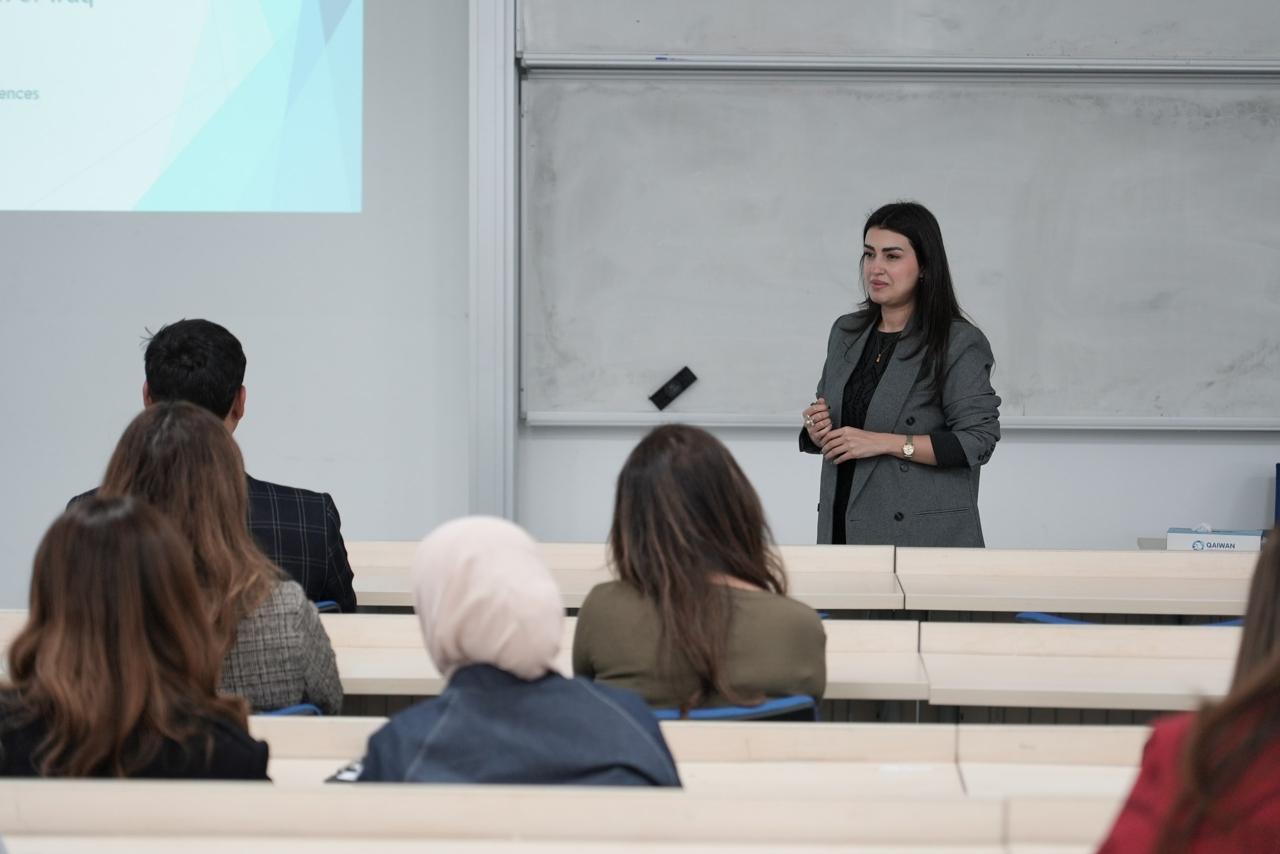
Qaiwan International University proudly highlights a recent research presentation by Miss Sharoo Nawrooz Fadhil from the Faculty of Management and Social Sciences. Her published study in the Academic Journal of International University of Erbil examines the impact of ecotourism and sustainable tourism on small business development in Sulaymaniyah Governorate.
The research reveals a strong positive link between ecotourism activities, tourism infrastructure, and local entrepreneurial growth, emphasizing the role of sustainable tourism in supporting employment, community participation, and long-term economic development in the Kurdistan Region.
“Exploring the Influence of Ecotourism and Sustainable Tourism on Small Business Creation and Developing the Local Communities' Economy: A Study of Activities, Infrastructure, and Demographic Factors in Sulaymaniyah Governorate – Kurdistan Region of Iraq.”
The study was published in the Academic Journal of International University of Erbil, contributing to the growing body of research on sustainable tourism and entrepreneurship in the Kurdistan Region.
Research Overview
This quantitative study, conducted in 2024, examined the relationship between ecotourism activities and the establishment of new small businesses in Sulaymaniyah Governorate. A total of 92 respondents participated in the research, including tourists, local residents, and tourism-related stakeholders.
Using statistical analysis methods including correlation, regression, and ANOVA, the study found:
Key Findings
The findings demonstrate that investing in sustainable tourism infrastructure and strengthening economic conditions can significantly enhance local entrepreneurship. Ecotourism was shown to generate tangible socioeconomic benefits, including:
The study provides practical insights for policymakers, investors, and local communities aiming to optimize the socioeconomic advantages of ecotourism in the Kurdistan Region.
Contribution to Regional Development
Miss. Sharoo’s research addresses an important gap in literature concerning Iraqi Kurdistan and offers evidence-based recommendations for leveraging ecotourism as a strategic tool for long-term economic sustainability.
This achievement reflects Qaiwan International University’s commitment to high-quality research that supports community development and regional advancement.

The Faculty of Management and Social Sciences (FMSS) at Qaiwan International University held a productive strategic meeting focused on strengthening research output, launching new research clusters, enhancing quality assurance processes, and expanding school outreach initiatives.
The session highlighted faculty collaboration, website development, ERP compliance, and continuous academic improvement to ensure excellence in teaching, research, and community engagement.
#FMSS #QIU #AcademicExcellence #ResearchDevelopment
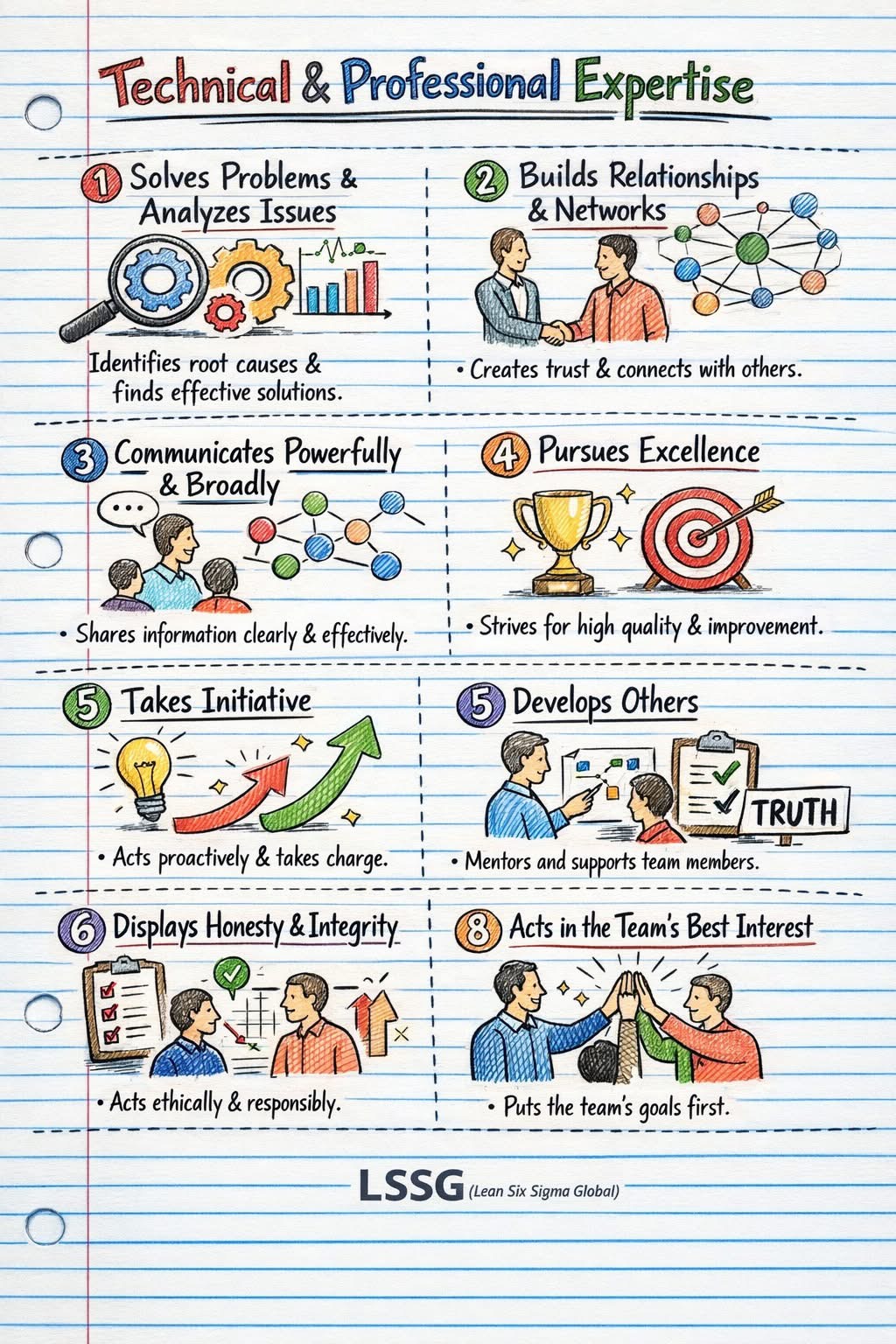
Technical Expertise Earns Academic Recognition / by Abdol Samad Nawi.
Professional Character Sustains Academic Legacy.
In academia, publications, grants, and technical mastery open doors.
But collaboration, integrity, leadership, and mentorship determine whether we build lasting impact.
Below are 20 Essential Soft Skills contextualized for FMSS lecturers and PhD scholars.
1. Scholarly Communication
Not just presenting research — but communicating ideas clearly to:
A brilliant idea poorly communicated has limited impact.
2. Academic Integrity
Integrity is the backbone of scholarship:
Reputation in academia compounds over decades — and can collapse overnight.
3. Critical & Independent Thinking
PhD scholars must move beyond consuming literature to:
A doctorate is not about knowing more — it is about thinking deeper.
4. Research Problem-Solving
Strong scholars:
Research should create impact, not just publications.
5. Emotional Intelligence in Supervision
For lecturers and supervisors:
Great supervisors build scholars — not just theses.
6. Collaborative Research Mindset
Modern research is interdisciplinary.
FMSS lecturers should:
Isolation limits impact.
7. Leadership Without Title
A PhD scholar can lead through:
Leadership is influence — not position.
8. Mentorship & Developing Others
Senior academics multiply impact by:
Legacy in academia is measured by people developed.
9. Resilience in Research
Rejections are normal:
Resilient scholars treat rejection as refinement.
10. Time & Priority Management
Balancing:
Without structure, burnout becomes inevitable.
11. Growth Mindset in Scholarship
Academics must continuously evolve:
Expertise that stops growing becomes obsolete.
12. Professional Networking
Conferences are not tourism — they are strategic opportunities.
Strong networks lead to:
Academic visibility matters.
13. Ethical Leadership in Committees
For those serving in:
Decisions must prioritize institutional integrity, not personal interests.
14. Adaptability to Educational Change
Education is transforming:
Lecturers must evolve faster than the syllabus.
15. Constructive Feedback Culture
Healthy academic environments encourage:
Critique improves scholarship — ego destroys it.
16. Initiative in Research Development
Do not wait for funding calls.
Proactive academics:
Opportunity favours preparation.
17. Strategic Thinking
FMSS should not only produce graduates —
It should produce solutions for industry and society.
Academics must think:
18. Accountability in Teaching
Students deserve:
Professionalism in teaching reflects institutional credibility.
19. Cultural Intelligence
In an international academic environment:
Global collaboration requires cultural sensitivity.
20. Acting in the Institution’s Best Interest
Beyond individual achievements:
Academic excellence must align with collective progress.
The Deeper Message for FMSS
A strong faculty is not built only on:
It is built on:
Technical skill builds careers.
Professional character builds institutions.
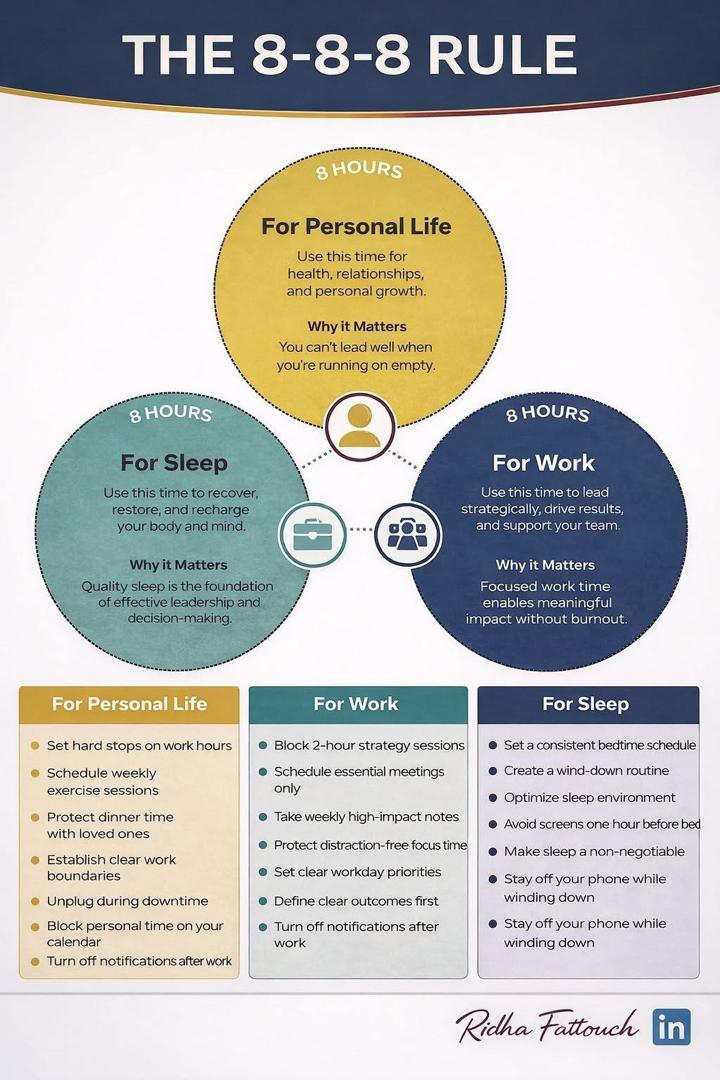
The 8-8-8 Rule is a simple, practical framework for achieving balance by dividing each day into work or study, sleep, and personal life. Designed for students, leaders, and families, it promotes sustainable performance, well-being, and resilience without burnout. The message is clear: true success comes from protecting productivity, rest, and life—every day.
The 8-8-8 Rule (In Plain Language by Abdol Samad Nawi)
Every day has 24 hours.
The idea is to intentionally divide them into:
• 8 hours → Work / Study
• 8 hours → Sleep
• 8 hours → Personal Life
Not rigid. Not perfect.
Just a guiding framework to prevent burnout and chaos.
1. For Students: Build Success Without Burnout
a. 8 Hours – Study with Purpose
This includes:
• Classes
• Homework
• Reading
• Projects
• Skill-building
Kaizen tip:
Study smarter, not longer.
• Use focused study blocks (45–90 minutes)
• Avoid multitasking
• Set 3 priorities per day
*Quality beats quantity.
b. 8 Hours – Sleep Is Not Optional
Sleep improves:
• Memory
• Concentration
• Emotional control
• Exam performance
Simple habits:
• Fixed bedtime
• Phone away before sleep
• Short reflection instead of scrolling
*A tired brain cannot learn well.
c. 8 Hours – Life Beyond Grades
This is for:
• Family & friends
• Exercise
• Hobbies
• Rest & joy
*A balanced student becomes a resilient graduate.
2. For Leaders: Sustainable High Performance
a. 8 Hours – Lead with Focus
Leadership is about impact, not endless hours.
Use work time for:
• Strategic thinking
• Decision-making
• Mentoring others
• High-value meetings only
*Burnt-out leaders create burnt-out teams.
b. 8 Hours – Sleep Is a Leadership Tool
Good sleep improves:
• Judgment
• Emotional intelligence
• Crisis management
*You cannot lead others well when running on empty.
c. 8 Hours – Recharge the Human Side
This includes:
• Family time
• Reflection
· Faith
• Physical health
• Learning beyond work
* Balanced leaders’ model healthy culture.
3. For Families: Creating Healthy Homes
a. 8 Hours – Work That Respects Life
Parents and caregivers need boundaries, not guilt.
Try:
• Clear work stops times
• Fewer distractions at home
• Presence over perfection
*Children learn balance by watching you.
b. 8 Hours – Family Sleep Culture
Sleep is a family habit, not just individual.
Simple steps:
• Consistent bedtime routines
• Screen-free nights
• Calm evenings
*Rested families communicate better.
c. 8 Hours – Togetherness & Meaning
This is for:
• Meals together
• Conversations
• Play
• Shared values
· Faith
*Strong families grow in ordinary moments.
The Bigger Message
The 8-8-8 Rule teaches us that:
• Hustle without rest leads to burnout
• Success without life leads to emptiness
• Balance is not weakness — it’s wisdom
One Question to End Each Day
“Did I protect my work, my rest, and my life today?”
If yes — you’re on the right path.
If not — tomorrow is a new chance.
*High performance starts with balance.
Small discipline. Big sustainability. Every day.
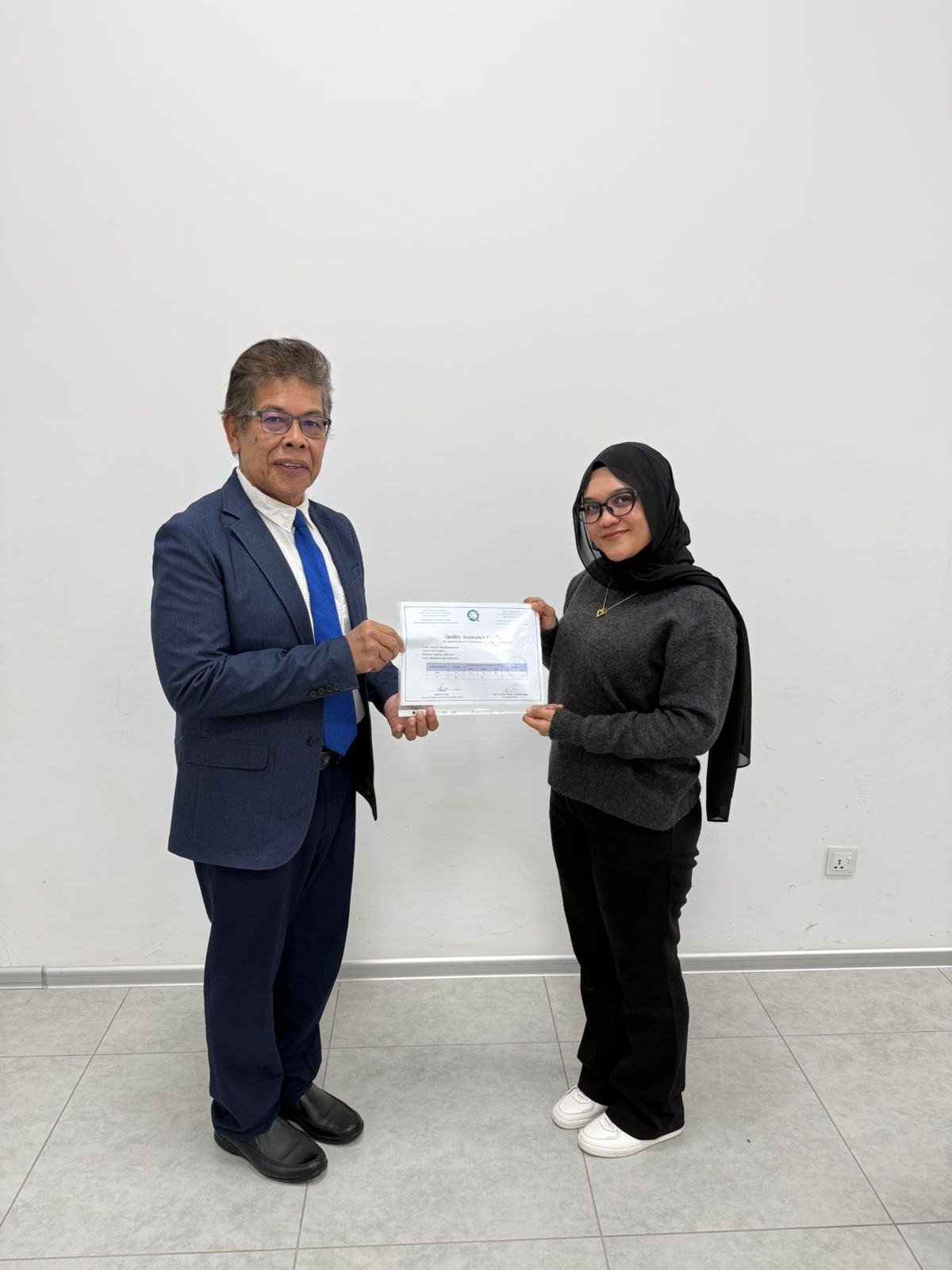
Our esteemed lecturers were awarded Quality Assurance Certificates during the FMSS Dean Address 2026, in recognition of their commitment to academic excellence, teaching quality, and continuous improvement in higher education standards.
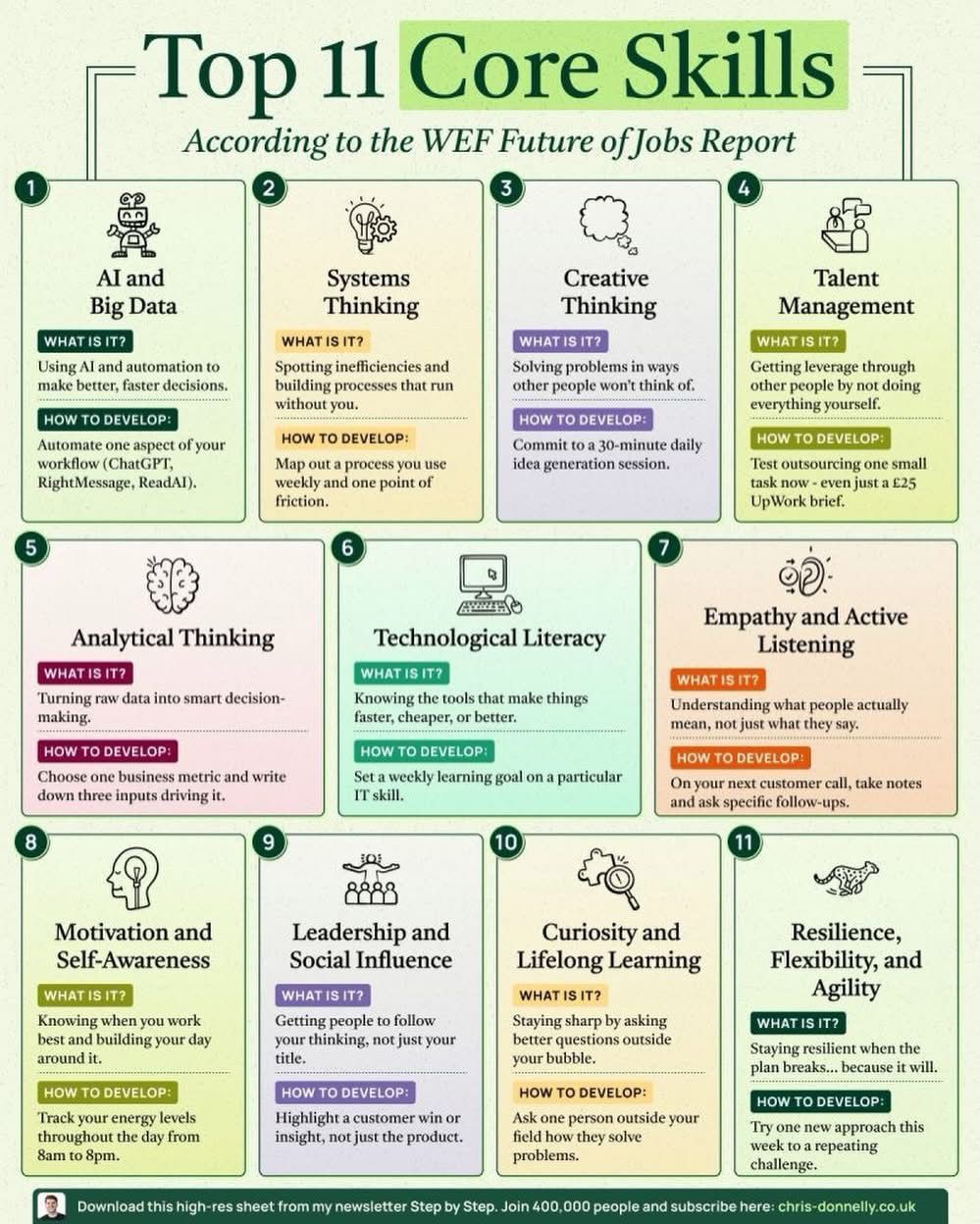
Below is the list exactly where the future of work and education is heading. I’ll elaborate on each skill in a deeper, more reflective way (beyond buzzwords), and connect them to real capability development, not just employability.
1. AI and Big Data
This is not about becoming a programmer—it’s about thinking with machines.
People who thrive will know how to ask the right questions of AI, interpret outputs critically, and understand bias, limits, and ethical implications of data-driven decisions.
Why it matters:
AI increasingly mediates decisions in hiring, healthcare, finance, education, and governance. Those who can work alongside AI—rather than fear or blindly trust it—will shape outcomes.
How to develop:
• Use AI tools as thinking partners, not shortcuts
• Learn basic data literacy: trends, correlations, causation
• Question outputs: What assumptions are embedded here?
2. Systems Thinking
Systems thinking is the ability to see connections, feedback loops, and unintended consequences rather than isolated events.
Why it matters:
Most real-world problems—climate change, education reform, public health, organizational failure—are systemic, not technical.
How to develop:
• Map processes end-to-end
• Ask “What happens next?” and “Who else is affected?”
• Study failures as system breakdowns, not individual mistakes
3. Creative Thinking
Creativity is not about art—it is about novel problem framing.
Why it matters:
Routine solutions can be automated. Original thinking cannot. Creativity allows people to reframe problems, combine ideas across domains, and imagine alternatives.
How to develop:
• Deliberately expose yourself to unfamiliar fields
• Practice idea generation without immediate judgment
• Ask “What if we did the opposite?”
4. Talent Management
This is the skill of unlocking potential in others, not controlling them.
Why it matters:
Organizations increasingly succeed through collaboration, not hierarchy. Leaders must coach, empower, and align strengths rather than micromanage.
How to develop:
• Learn to delegate meaningfully
• Give feedback that develops, not demoralizes
• Focus on strengths, not just weaknesses
5. Analytical Thinking
Analytical thinking is the discipline of reasoning clearly under uncertainty.
Why it matters:
In a world flooded with information, the real skill is deciding what matters and why.
How to develop:
• Break problems into assumptions
• Distinguish evidence from opinion
• Practice explaining complex ideas simply
6. Technological Literacy
This is not knowing every tool, but knowing how technology shapes behavior, power, and efficiency.
Why it matters:
Technology increasingly structures work, communication, surveillance, and decision-making.
How to develop:
• Learn why tools exist, not just how to use them
• Stay adaptable as platforms change
• Understand trade-offs (speed vs quality, convenience vs privacy)
7. Empathy and Active Listening
Empathy is intellectual humility—the ability to understand perspectives beyond your own.
Why it matters:
As automation grows, human-centered skills become more valuable. Empathy improves leadership, negotiation, teaching, and conflict resolution.
How to develop:
• Listen to understand, not to respond
• Ask clarifying questions
• Reflect back what you hear before reacting
8. Motivation and Self-Awareness
This is knowing how you function best—your energy, limits, values, and triggers.
Why it matters:
Sustainable performance requires self-regulation, not constant pressure.
How to develop:
• Track when you do your best thinking
• Reflect on failures without self-blame
• Align work with meaning, not just rewards
9. Leadership and Social Influence
Leadership is influence grounded in credibility and trust, not authority.
Why it matters:
Future leaders must guide through complexity, uncertainty, and diversity—not command-and-control.
How to develop:
• Lead through ideas and example
• Communicate vision clearly
• Build coalitions, not followers
10. Curiosity and Lifelong Learning
Curiosity is the engine of adaptability.
Why it matters:
Jobs change faster than degrees. The most valuable skill is the ability to learn, unlearn, and relearn.
How to develop:
• Ask better questions, not just seek answers
• Read outside your discipline
• Treat learning as a habit, not a phase
11. Resilience, Flexibility, and Agility
This is not just “being tough”—it’s recovering, adapting, and evolving.
Why it matters:
Careers are no longer linear. Setbacks, disruptions, and reinvention are normal.
How to develop:
• Reframe failure as feedback
• Practice small experiments
• Stay open to change without losing core values
Big Picture Insight
What’s striking about this list is that most of these are thinking skills, not technical skills. This aligns strongly with my earlier point about PhD training:
The future belongs to thinkers, not narrow specialists!
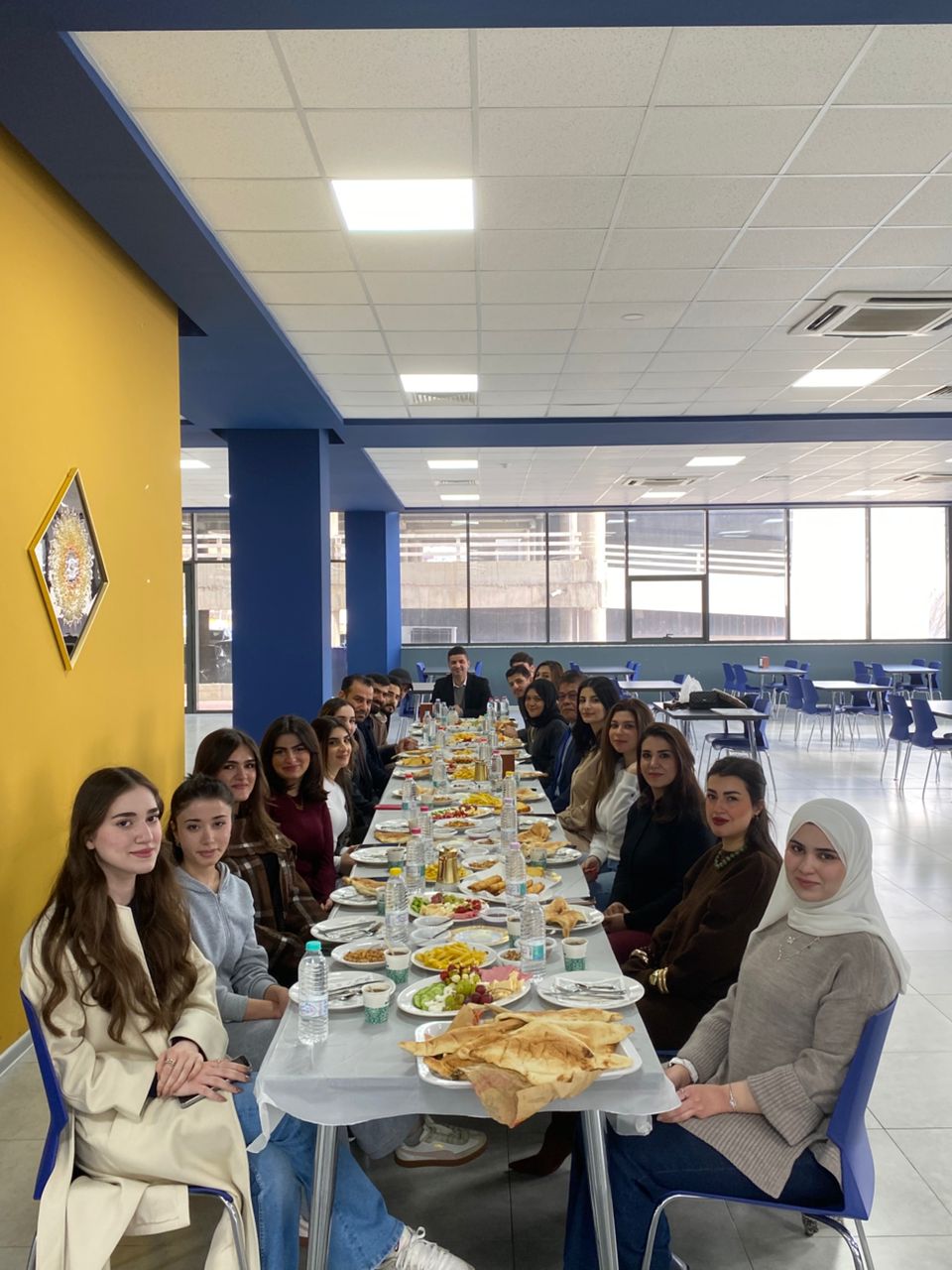
This activity was prepared and organized by our students and held at the University cafeteria, where faculty members and lecturers were warmly invited.